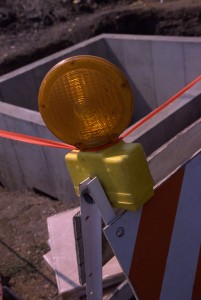 Often times in construction projects there are disputes. Those disputes can be between the owner of a project and the general contractor, or between the general contractor and lower tiered contractors/suppliers, or amongst various parties involved in a construction project.
Often times in construction projects there are disputes. Those disputes can be between the owner of a project and the general contractor, or between the general contractor and lower tiered contractors/suppliers, or amongst various parties involved in a construction project.
Maryland’s Mechanic’s Lien statute is intended to protect those various contractors, who contribute to the value of the owner’s property, from improper non-payment. This protection comes in the form of a mechanic’s lien on the property improved in the event that the contractor or supplier is improperly unpaid. As with most aspects of a construction project, the mechanic’s lien statutes are complex and exacting and if the contractor or supplier fails to follow the mechanic’s lien law and process precisely, it will not be entitled to a lien.
There are two crucial deadlines to consider when initiating the mechanics’ lien process in Maryland.
In the case of a contractor that holds a contract with the owner (such as a general contractor), one simply needs to file a petition to establish a mechanic’s lien within 180 days after the work has been finished or the materials furnished.
This process becomes more complex for a subcontractor or a supplier (who does not have a contract with the owner) given that, in addition to the petition referenced above, notice of intent to lien must be provided to the owner within 120 days after the work has been finished or the materials furnished. The Maryland mechanic’s lien statutes provide a safe harbor form of this notice.
Notice is considered effective if given by registered or certified mail, return receipt requested, or personally delivered to the owner by the Subcontractor or an agent of the subcontractor. Improper notice defeats a lien and must be handled with caution.
If a contractor is successful and obtains a lien, the lien can be foreclosed in a process that is somewhat similar to a foreclosure on a deed of trust, mortgage or other monetary encumbrance.
Souza regularly assists clients with prosecuting mechanic’s lien cases as well as defending those cases on behalf of owners.
The information you obtain at this site should not be taken as formal legal advice. You should consult an attorney for advice regarding your individual situation. We invite you to contact us and welcome your calls, letters and electronic mail. Please do not send any confidential information to us until such time as an attorney-client relationship has been established.

